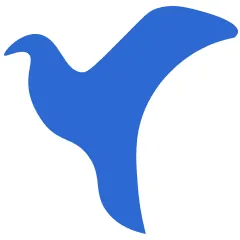Reflecting on Tech Myths and Realities
I never imagined that reviewing TikToks about software engineering would reveal so many misconceptions and truths about the field, from the value of a college degree to the rise of AI in coding.
This journey through viral advice and personal experiences highlights the stakes for aspiring tech professionals, where outdated myths could derail careers while smart strategies open doors to success.
TL;DR
You don't need college for computer science, but it boosts job chances at top companies like Google.
AI is transforming coding, with tools writing code and changing what skills matter most in tech.
Learning algorithms like Dijkstra's helps navigate complex problems, even if explained in quirky ways.
Freshmen should apply for internships despite low odds, as experience builds through failures and tries.
Adapting to AI and using resources like Python Tutor ensures success in the demanding computer science world.
As I delved into the debate on college for computer science, I realized that while it's possible to land a job with just a short coding course, the reality is more nuanced. I have two degrees from Georgia Tech, and that credential opened doors at companies with less than 1% acceptance rates, like Google, where a bachelor's degree is often a basic requirement. Many firms recruit from top schools, giving graduates an edge in a sea of applicants, even if self-taught coders can compete.

Shifting to AI's growing influence, I've seen how it's reshaping the industry. Leaders like NVIDIA's CEO predict AI will handle much of the coding, with reports showing 25% of Google's code already AI-generated. This raises concerns about job security, but as someone with years in software engineering, I believe the key is to learn how AI works and use it to enhance our skills, much like how the internet disrupted and then empowered businesses like Netflix.

In my exploration, I came across a fun explanation of Dijkstra's algorithm, which finds the shortest path in a network. Imagine navigating from point A to F with the least cost; you start at A, choose the next closest point like B or C, and avoid revisiting nodes to minimize the total path. It's a genius concept, often taught with graphs and edges, and while the TikTok version used playful terms, it still captured the essence of prioritizing paths for efficiency.
One piece of advice I strongly endorse is applying for internships early, even as a freshman. I landed my first role at Amazon with just AP Computer Science under my belt, learning through repeated interviews that failure is a teacher. Sure, upperclassmen might have an advantage, but shooting your shot builds resilience and skills, as the worst outcome is simply a rejection that offers valuable lessons.

The challenges of computer science are real, with high dropout rates and stereotypes about long hours and neglected self-care. Resources like Python Tutor, which visualizes code execution in languages like Python and Java, and MIT OpenCourseWare, offering free problem sets and lectures, were game-changers for me. They helped bridge gaps in understanding, making complex topics more approachable and turning potential burnout into manageable progress.
Through all this, I've seen the humor in tech culture, from memes about not showering during hackathons to overconfident startup ideas, but it underscores the need for continuous learning and project-building. As AI advances, it's clear that adapting isn't optional; it's the path to thriving in an ever-changing field.
Looking back, the evolution of software engineering from punch cards to AI-driven code reminds us that those who embrace change, like learning AI tools each semester, will lead the way. This adaptability not only secures jobs but also sparks innovation for the future.
Key Takeaways
College enhances opportunities in tech, though self-learning can work if paired with real-world experience.
AI is revolutionizing coding, so focus on understanding and using it to stay competitive.
Apply for internships early and often to gain skills through practice and persistence.
Use resources like Python Tutor and MIT courses to master computer science concepts effectively.











